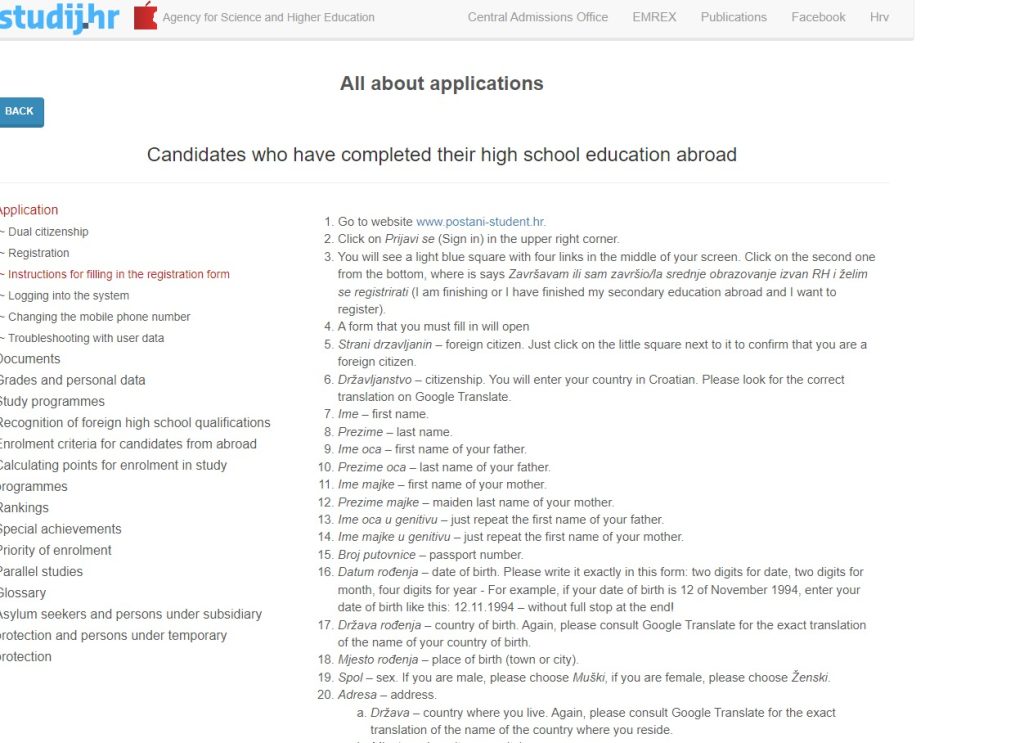February 29, 2024 – First impressions count, and the mindset of the past does not belong in 2024 – example, attracting foreign students to Croatia.
One of the ways I market myself in Croatia is ‘local knowledge with a foreign eye.’ As a foreigner, I know what foreigners are looking for, and as an (almost) local, I have an increasing awareness of how things work here and why things are the way they are.
A good example of this was an article I wrote in 2012 just after the launch of Total Split. My foreign eye could see that there was a huge gap in understanding and information regarding buying ferry tickets at the Split harbour. Locals would not think there was a problem as everyone knew how to buy tickets as a local, but many apartment owners found themselves explaining over and over again how and where to buy ferry and catamaran tickets.
My article had an aerial photo of the harbour, including bus and train station. It pointed out where everything was, where to get tickets for the catamaran, the main ferry, and the Blue Line ferry to Ancona.
It was an absolute hit, and dozens of apartment owners placed the link on their websites to explain how to buy tickets, and they emailed the link with every booking. It was great for link juice for me, the guest got the info without problem, and the apartment owner could concentrate on the joys of living in Split.
Over the years, I have come to realise that websites appear in a certain format, because that is the way it has always been. There is little critical thinking, and everyone just accepts that this is the way it is. Myself included.
A few years ago, I had become so ingrained with the idea that websites would have fax numbers and not email addresses in this region, because that is just the way it was. One day,I realised this was crazy and took to Facebook to ask people when they had last used a fax and – to the younger generation – whether they could even recognise a fax if one walked past them on the street. Many said they had no idea how they worked or what they looked like. And yet they still persist – in lieu of email addresses – on many official Croatian websites today.
The year is 2024, and there is less and less reason to accept this relic of the past. It takes just a few seconds to get a fresh pair of eyes on an official website and point out the dinosaurs of the past. And it takes a few seconds to update them to the 21st century.
With my foreign eye, I always approach things through a foreign eye in tourism, to see how tourists see things. It is why I see a major issue with some tourism promotion material that locals don’t see – because it is in Croatian only.
But it is not just tourism, but all over Croatian sectors. Take the field of education and attracting foreign student to Croatia. This is an area I knew little about until I came across Algebra University a few years ago – a private initiative that is pushing academic excellence to new heights in Croatia and abroad. Indeed, did you know that you can now get a British university degree living and studying in Zagreb, due to Algebra’s partnership with Goldsmiths University in London.
Having had a tour of the new campus and spent time with the Algrebra admissions staff a couple of years ago, I can only wonder at the efficiency and efforts they go to to break down all bureaucratic barriers to make the potential student’s life a lot easier.

Super clear and straightforward application process, with contact details in case of questions. A website that wants the business and has an application process in the international language of English (this is not a sponsored post, it just gives a great contrast and shows what is possible).
Now contrast this with the Agency for Science and Higher Education. Remember to look at this through the eyes of the eager foreign student:

Not only is the application process on an entirely different website, but it is also in Croatian, and the ‘helpful’ notes to fill in the Croatian application only highlight the absurdity of the system which is accepted locally as the way it has always been, but has no place in a globally competitive market.
Requiring the applicant to use Google Translate as a tool to fill in the application process is one thing, but points 11-14 show all that is wrong. We need the name of your mother (11), now your father (12), now your mother again (13), now your father again (14).
Take a step back and look from the perspective of the foreign student. If this is what the application process is going to be like, what is the actual education programme going to be like? Perhaps I will entrust my higher education to a country which is able to communicate the basics in understandable terms.
This is not to single out this agency, it just gives a good contrast to the excellence of Algebra. Take a look at any official website, and the chances are that you will find remnants of the old mentality – fax numbers, father’s first names and the like. To someone not in the system looking with foreign eyes, they look extremely backward and dated, sending out that all-important first impression to the prospective client, investor, or visitor.
It is an easy problem to fix, and the longer these things go unfixed, the more unserious these institutions appear.










